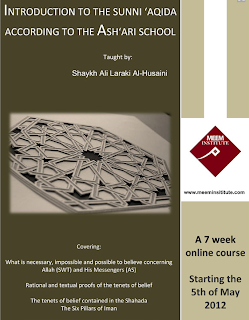Characteristics of the Mālikī School by Shaylh Ali Laraki al-Husaini

Taken from meeminstitute.com
I. The hadith of the Prophet(s) regarding the Scholar of Medina
An amazing factor that characterises the school of Imam Mālik and singles it out regarding other schools of fiqh is the fact that the appearance of its eponym was prophesised by the Messenger of Allahr. We can find evidence in the following hadith narrated by Abū Hurayra and transmitted by al-Tirmidhī in his Sunan[1] and al-Ḥākim in his Mustadrak:[2]
The Messenger of Allahr said, There will come a time when the people will beat the livers of their camels in search of knowledge and they will not find a scholar with more knowledge than the one of Medina.
Al-Tirmidhī said that this hadith is ḥasan, whilst Al-Ḥākim said that it is ṣaḥīḥ, according to Muslim’s rules of authenticity.[3]
The expression “to beat the livers of their camels” is a metaphor indicating the speed of the journey and desire to arrive at a desired destination due to fear of missing one’s aim. The reason is that camels were the only means of travel during that era.
The hadith is a notification from the Prophet(s) that very soon the people will be eagerly searching for knowledge, but will not find a scholar more knowledgeable than the scholar of Medina.
But, who is this scholar whose coming has been heralded? Sufyān b. ʿUyayna and other contemporaries of Mālik and those who came after him have said, “Verily it is Mālik b. Anas.”
The hadith is one of the prophetic miracles, in that the Prophetr informed of a matter that happened in a future time just as he said it would happen. Accordingly, history has registered that the people used to travel to Mālik from the east and the west seeking knowledge and fatwā. The number of those who have narrated on his authority has reached one thousand and three hundred (1300) scholars of hadith. Such has happened neither for anyone before nor anyone after him. The hadith from another regard is a testimony for Mālik—may Allah show him mercy—in that he is the most knowledgeable and the one with the greatest understanding of the people of his time, and sufficient a testimony it is from the Messengerr for Mālik, for his madhhab, and for his fiqh.[4]
II. The Uṣūl (sources) of the Mālikī School



.jpg)




